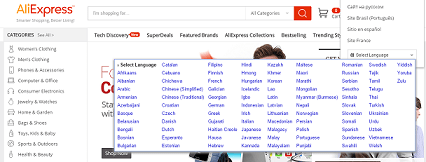What’s the right approach when you want your website to have foreign language versions? Is it translation alone, or are there wider issues? Lichi Translations in Israel is an expert agency that translates websites, fast and well.
Take advantage of Lichi’s rich experience
In today’s world, the internet – and specifically websites – represent the appearance of the company. Regardless of the product or service sold, a website is the first place potential customers look at before making the purchase. They’ll look at the graphic images, the messages portrayed, and the online recommendations!
Many mid-to-large size organizations find that they wish to expand their sales efforts into international markets. For example, a German organization might want to sell to the North American market and vice versa. A French company might want to sell to the African market, or a North American company will want to sell to Asia etc…
Research shows that most individuals prefer to purchase in their own language, even if they’re comfortable with English – the world’s most common language. Adapting to the local language will actually increase website sales! Clear evidence of this can be seen in the huge e-commerce websites such as AliExpress that offer the surfer an option to purchase in practically any language.

GUIDELINES FOR ADDING LANGUAGES TO YOUR WEBSITE
Creating content or graphics that are the right fit for a new market in a new country is not as simple as it sounds. There are many barriers to getting a clear message across which go beyond the translation.
Lichi translation agency in Israel has translated many websites into multiple languages. Our international team has collected a number of useful tips to help you adapt your content to other languages:
- Identify your target countries for future sales
More doesn’t mean better. We often advise our clients to narrow their sales targets to specific countries and start small. This enables suitable business research and planning, while investing the company’s resources (manpower, finances, time) wisely.
Check your Google analytic results to define which countries traffic is coming from and prepare a landing page or a few pages in the relevant language.
Understand the language you pick out: For example, it is not enough to select the Chinese language – you must know if your potential market is mainland China – you then need to use Simplified Chinese – or if your customer base is in Taiwan, you will need to use traditional Chinese.
- Select the important web pages and their length
When it comes to the actual website, find out which content is relevant for which country.
In most cases companies choose to translate only part of the web content from the original language. There is no point in translating your local event page for people who live on the other side of the globe.
Choose the relevant pages: about us, product or service information, and call to action. With time, as the actual sales progress begins to happen we advise you to continue uploading more relevant content.
Check how many pages or words the text includes, so you can evaluate translation costs and build your budget. More text is more money! Take this into consideration…
If you want your website to be fully localized, remember there is more than what you can see. There are tabs, buttons, tooltips, messages, error messages – all these need to be fully translated.
- Be sensitive to the culture of your target country
If you are trying to massively penetrate a new market, think also about the look and feel of the website. Do you want it to have a different look graphically, or do you want it to look identical to your original website?
For example, Chinese websites look very different from North American or European websites, so if you are looking to reach a Chinese consumer you may want to consider preparing an entirely new website, 100% Chinese. Or, on the other hand, you may want to consider a duplicate website, if you want to message a global international feeling to your business.
- Use a translation agency with local culture experts
Match the right experts to each project. The translator must not only speak the language as a ‘mother tongue’ but must also have prior relevant knowledge – of the industry, the country’s culture, and possibly even the product. For example, a technology-oriented translator for a technological product and a legal translator for legal content.
- Have a project manager handle all language versions
Translating content requires assigning the translation to the most suitable translator, coordinating guidelines, supervising timely delivery, and overall back-and-forth communications. When translating content into many languages you must deal with many translators; it’s a complex and time-consuming task.
Multilingual material should be delivered in an organized way, so that whoever inserts the text into the back office knows what goes where. It’s not easy to understand a Korean or Arabic script – you don’t want to cut words or omit content, and you sure don’t want to get lost in the translation.
Once you’ve uploaded all the information, don’t save on the final touch. Have a native speaker review and make sure everything is in place. It’s so easy to omit a Chinese character…
Contact us today for help in translating your website content into many languages!






